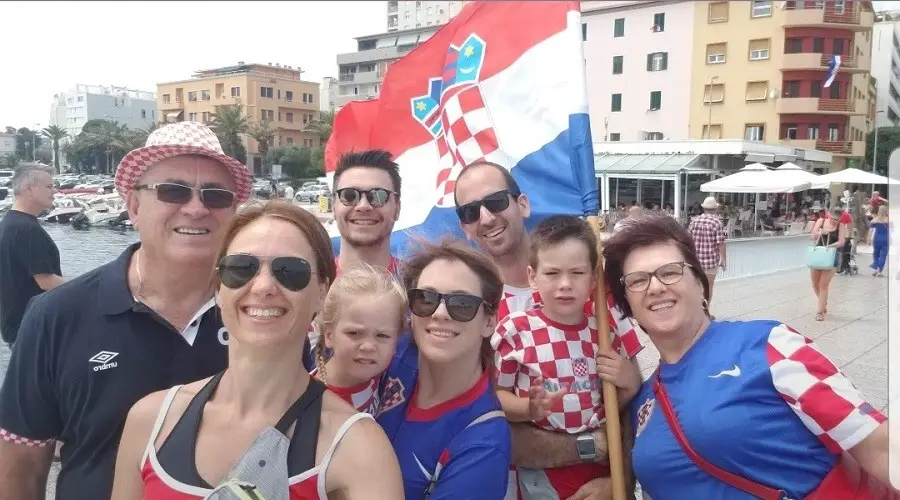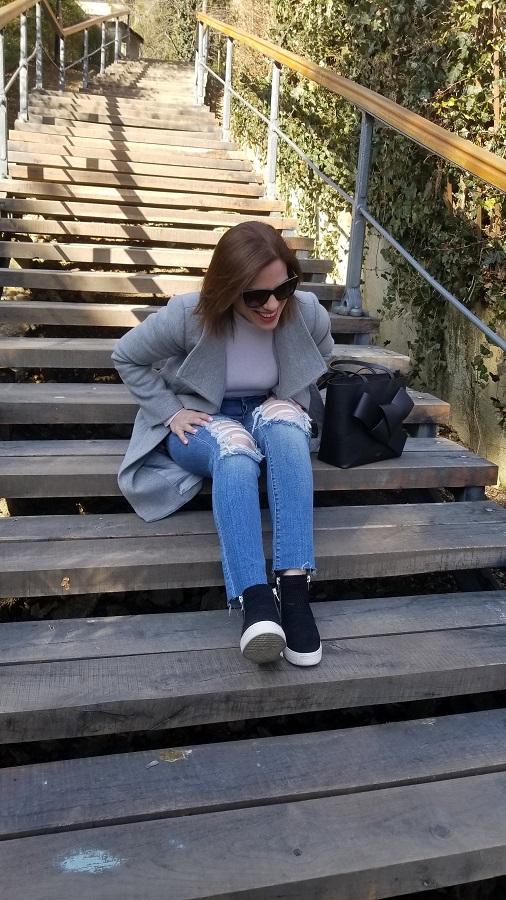My name is Marijana Begonja. I was born in Zadar, Croatia, in 1987. In 1988, my family moved to Mississauga, Ontario, Canada. At 21, I decided it was time to try something I’d thought a lot about before: moving to Croatia. First, I moved to Dubrovnik to complete my university education; then, I moved to Zagreb to pursue my professional career. Currently, I work as a Senior Sales Manager at Procter & Gamble. My family is scattered between Croatia and Canada, with my sister, brother-in-law, and their 3 children living in Toronto, my brother living in Zagreb, and my parents spending their retirement going between Privlaka (our hometown), Mississauga, and Zagreb. We hope one day that we’ll all be permanently together in Croatia.
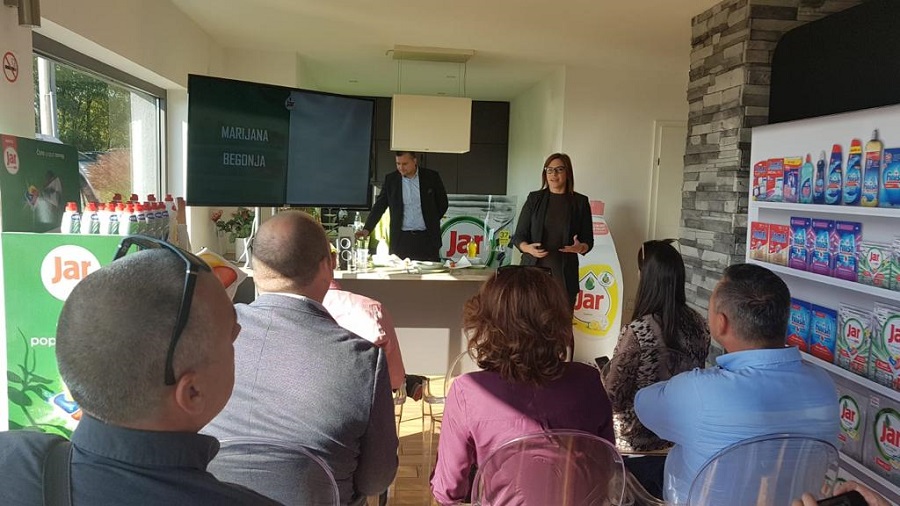
1. You made the switch to Croatia. Tell us a little about the decision process and how long it took for you to get on the plane.
When we moved to Canada, I was a baby, but my older sister was 9, so she always had the desire to move back to Croatia and made a move in 2004. At the time, I was in high school, and she was looking into universities in Croatia for me. However, as I’m not a huge risk taker, I ended up deciding to go to university in Canada for graphic communications management. At some point, I realized it was not something I wanted to do for the rest of my life, and started working at a bank. At 19, working at a bank and living from home, I thought I didn’t need university, so I dropped out. My parents were adamant about me getting a university education as they knew the potential was there and worked very hard in Canada to secure us a bright future. They both even worked 2 jobs at a time, so I felt I couldn’t let them down. I decided at that point it was now or never and applied to a university in Croatia. Once I was accepted, the decision was made. It was a surprisingly short decision; in November 2007, I dropped out of university in Canada, and in August 2008, I was on a plane to Croatia.
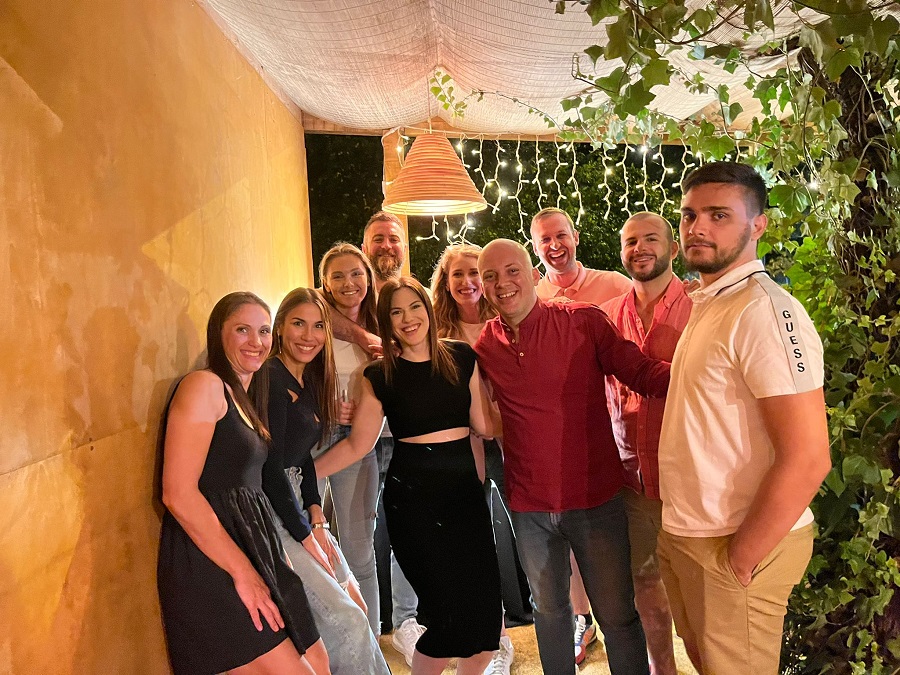
2. What did your family and community back home think of your decision at the time?
Overall I had huge support across the board. My father was probably the most supportive as it was his dream for us to move back (we were only supposed to move to Canada temporarily, but unfortunately, the war changed this). He immediately started looking for apartments for me to rent. My mom, knowing my nature of not liking change, was supportive as long as I was happy but had a feeling I might change my mind after 2 weeks. She was also happy that her daughters would be together again but still sad that another child was moving away. The hardest part was leaving my little brother behind. He was 13 at the time, and both my sister and I had a big role in raising him given the age gap, and suddenly at a critical time in his life, he would be alone. Of course, my sister was the most excited as we would be reunited once again and started making a million plans for us to do together. My friends were fantastic and made sure my last few months in Canada were ones to remember and made sure to keep in contact once I left. We had multiple going away parties and even started some traditions that still last to this day. My boss at the bank where I was working at the time was extremely supportive despite my resigning shortly after getting promoted, telling me this was something I really needed, meaning it was time for me to step out of my comfort zone.

3. Where did you get your information about the realities of Croatia prior to coming?
My sister is probably the best big sister anyone in the world could ask for. If it wasn’t for her paving the path for me, I never would have made a move. She helped me with a lot of the administration, documents, setting up a bank account, etc. She went everywhere with me, making the process easy for me, whereas when she came, she had to figure it all out on her own. She gave me a lot of advice on all aspects of life in Croatia, so I would say I was well prepared.
4. What were you most nervous about making the switch? What was your biggest fear, and what was the reality of what you found?
After spending two years at university in Canada and deciding not to continue and changing my direction into economics, I pretty much lost those two years. I was afraid that if I failed, I would lose more time in my life and have to start somewhere from scratch again. My second greatest fear was letting my family down. Throughout my entire life, they were my support system, and if I realized I made a mistake at some point, I was worried about letting them down. Luckily for me, very soon after moving back, I knew I was going to stay for good. The lifestyle was much more fit to my personality, honest friendships which quickly formed the ability to meet with someone at any given point for a coffee. As an extrovert, this was a huge positive for me. At university, I was quickly getting good grades, and in my first semester, I made the dean’s list, so I realized I finally found a path suited for me.
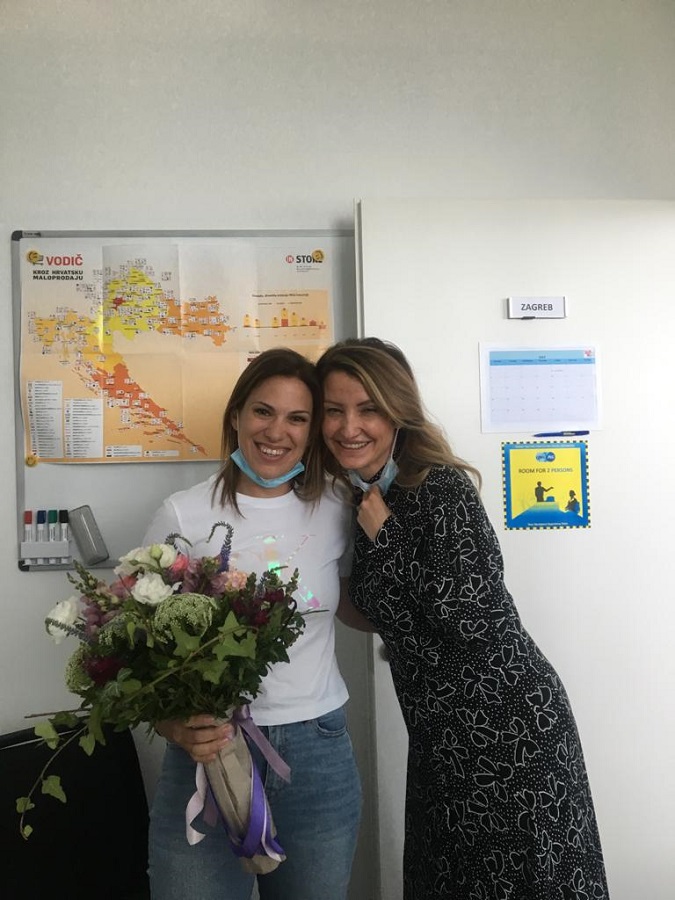
5. Think back to the time before you arrived. What were your perceptions about Croatia, and how were they different from the reality you encountered?
I have to commend my parents here because, thanks to them, I would say my perceptions were very realistic. Unlike a lot of other diasporas, they weren’t so focused on teaching me the history (which, of course, they did), they encouraged me to understand the present situation in Croatia throughout all the years and the progress it was making. They didn’t focus so much on the difficult times such as the war but focused on the prosperity post-war. I had cousins my age in Croatia on my mom’s side, and she encouraged me to stay in contact with them, which helped a lot. My dad encouraged me to discover things such as current music and things that would interest me. So thanks to all this, I would say my perceptions weren’t way off. There were two things for which I would say my perceptions were a bit different than reality. Firstly being from Zadar, for me, Dalmatia was Croatia, and all of the beauties of Croatia were in Dalmatia. Thanks mostly to my job, I had the pleasure of exploring all parts of Croatia, both rural and urban, and realized that Croatia has so many beautiful gems across the country, and Dalmatia is just one part of it. The second thing is I knew my Croatian wasn’t perfect and was afraid I would get made fun of a lot for this and tried to hide it as much as possible. It was the exact opposite, people find it endearing, and to this date, I embrace my “undefined” accent.

6. You are still here, so obviously, the pros outweigh the cons. Tell us about some of the things that you love about being in Croatia, as well as some of the things you don’t like.
Correct, the pros outweigh the cons. The biggest pro for me is the overall social aspect. Firstly, people are more honest in Croatia. Let me give an example – in Canada, if you run into an acquaintance, you say “how are you?” to each other, but really it’s just a formality, and if you answer anything other than “good, thanks”, you’re weird. In Croatia, though, you answer honestly, and you engage in conversation. Friendships and relationships, I would say, develop faster because a lot of personal time is dedicated to socializing, and it’s more than just coffee as the perception. It’s going for a walk, playing a sport together, etc.
Geographically Croatia is perfect. In one day, I can be at the top of Sljeme, and the next day it’s a few hours’ drive to the seaside. Croatian nature offers something for everyone. Also, being located in Central Europe, so many destinations are easily accessible. Weekend trips are the norm, whether in Croatia or outside the borders. I feel that despite Canada being a multicultural country, I have gained so much more cultural knowledge of the world while living in Croatia. In general, I feel more intelligent about my knowledge of the world since moving here. There’s much more curiosity to discover things outside the world we live in here rather than in Canada.
One other thing I feel is significantly better in Croatia than in Canada is the security financial institutions provide. Croatia was using chip cards in masses while Canada was still in magnetic strips. Additionally, as internet banking and apps developed, I feel like Croatia was always a step ahead in providing great services while still maintaining high security. It seems to me that cases of identity theft and such were more frequent in Canada, but this could be due to the nature of my job in Canada.
The main thing that I wish I could change in Croatia is customer service. In Canada, a sales associate in stores is extremely friendly (too much, in my opinion) and constantly asks you if you need help. In many stores in Croatia, you’re lucky if you get “izvolite” (here you go). I guess being exposed to two extremes, I wish Croatia would find itself in the middle. Especially when it comes to escalations. In Canada, most disputes can be resolved on the spot or over a phone call. Whereas any complaint or dispute always has to be handled in writing in Croatia and can take months to resolve. Also, in Canada, the question “can I speak to your manager” usually results in a resolution, but in Croatia, the answer is always no.
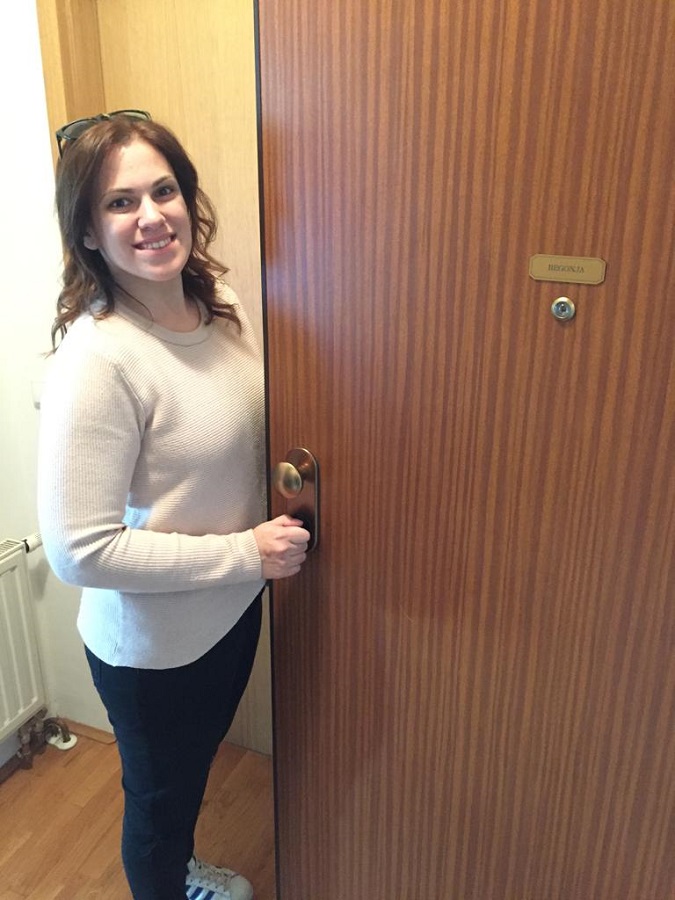
7. What advice do you have for others thinking about making a move from the diaspora?
Don’t expect life in Croatia to be just like your 4-week summer vacation in Croatia. A lot of people come on vacation and think I could live here and make a move and realize it’s a lot different than they realized. Another thing is to avoid comparisons. In my case, Canada and Croatia are two widely different countries, from history to economics. You can’t compare, for example, a salary like for like because yes, in Canada it will be absolutely much higher. There are so many things that go into the prices and costs of things that simply aren’t comparable. Why I say this is yes, probably if you’re coming from a diaspora, you’re coming from somewhere with a higher income, but in most cases, the cost of living is also significantly higher so really, what you make of that salary is up to you. For example, after only 3 years of working full-time in Croatia, I became a homeowner relatively close to the city center. If I took the same parameters into account in Canada – the same job at the same company, similar location to the city center, similar size, there is no way I would be able to be a homeowner that quickly. So yes, in Canada, I would be making much more, but at what expense?
One more important piece of advice – don’t listen to naysayers and people giving their negative advice. I remember when I started job searching here, everyone told me I would not find a good job without a connection. I made it my mission to do the exact opposite, and after only 3 months of searching, I was working at an entry-level position at my current company and have made significant strides in my 8 years in the company without knowing a single person. My advice is anyone who wants to work in Croatia can work. The path might be rougher, but regardless I genuinely believe that anyone can succeed.
8. How do you think Croatia can better assist those who are looking to return to the Homeland?
There are two significant things – one is directly related to returnees and the diaspora, and the second is a bit broader.
In relation to returnees and the diaspora, Croatia should try to work more with the communities outside of Croatia and their education in Croatia. As a kid, my parents enrolled me in all the activities the Croatian community had to offer – folklore, tambura, Saturday Croatian school, and to be honest, most of my knowledge of Croatia, the culture, and the language didn’t come from there, it came from home. Grades 1-11 of Croatian Saturday school, and I never once learned padeži (cases). I can’t blame the diaspora communities – often, it’s 1st 2nd, and 3rd generations trying to keep the Croatian culture alive, and for them, I have respect. However, if they were given more help, guidance, and resources from Croatia, we could have 5th generation Croatians speaking Croatian as if they’ve lived here and know that Ljiljana Nikolovska is, in fact, not the current lead singer of Magazin or that drmeš (folklore) is not danced at all weddings in Croatia. So much of what we know about Croatia is learned at home, and I am so thankful that my parents made an effort to teach me that being Croatian wasn’t about hating Serbians, tattooing the GRB (emblem) on yourself, or being conservative. is what makes you Croatian. Croatia needs the diaspora to help build a prosperous future, but they need to enable them with the knowledge of what Croatia is in 2022, not what was decades or centuries ago.
The other thing Croatia needs to do is to make it a more investable country to make it attractive for returnees. In order for us to grow economically, much more significant step changes need to be made. Yes, they’ve made it attractive for digital nomads, but unfortunately, this attracts a small niche of people, and as mentioned, they are nomads. Croatia, especially with the declining population, needs sustainable solutions. So much onus is placed upon the employers through minimum wage increases or not taxing certain benefits given to employees, but still, the investment needs to come from the employers. In order to generate economic growth in an economy with a declining population, the Croatian government needs Croatians to spend. By reducing taxes, it gives higher purchasing power, and by alleviating the financial struggle of citizens by easing taxes, the government will still get the funding back through consumer spending. This, as a result, would make Croatia more attractive to those looking to return as they wouldn’t take as big a salary cut moving to Croatia, and would make Croatia a much more attractive company for investment, therefore creating more jobs. I speak of this in a really simplified manner, but in order for people to return, Croatia needs to be more economically attractive, and I see this as the first step in that direction.
****
Thanks, Marijana!
You can follow more stories in the Croatian Returnee Reflections series in our dedicated TCN section.
Would you like your returnee story – positive or negative – to be featured in this series? Contact [email protected] Subject Returnee.
****
What is it like to live in Croatia? An expat for 20 years, you can follow my series, 20 Ways Croatia Changed Me in 20 Years, starting at the beginning – Business and Dalmatia.
Follow Paul Bradbury on LinkedIn.
Croatia, a Survival Kit for Foreigners will be out by Christmas. If you would like to reserve a copy, email [email protected] Subject 20 Years Book

